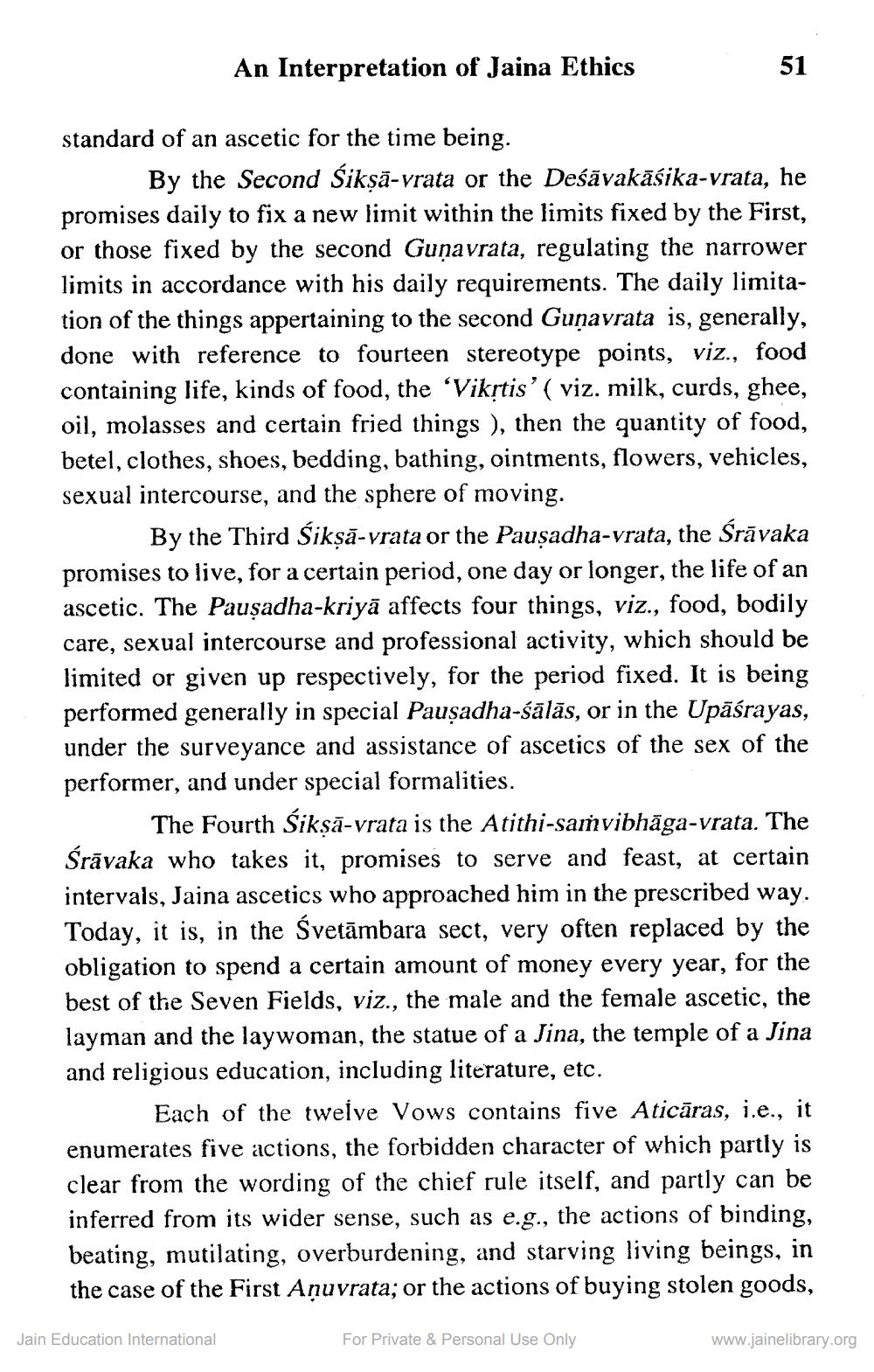________________
An Interpretation of Jaina Ethics
standard of an ascetic for the time being.
By the Second Sikṣā-vrata or the Deśāvakāśika-vrata, he promises daily to fix a new limit within the limits fixed by the First, or those fixed by the second Guṇavrata, regulating the narrower limits in accordance with his daily requirements. The daily limitation of the things appertaining to the second Guṇavrata is, generally, done with reference to fourteen stereotype points, viz., food containing life, kinds of food, the 'Vikṛtis' (viz. milk, curds, ghee, oil, molasses and certain fried things ), then the quantity of food, betel, clothes, shoes, bedding, bathing, ointments, flowers, vehicles, sexual intercourse, and the sphere of moving.
51
By the Third Sikṣā-vrata or the Pauṣadha-vrata, the Śrāvaka promises to live, for a certain period, one day or longer, the life of an ascetic. The Pauṣadha-kriyā affects four things, viz., food, bodily care, sexual intercourse and professional activity, which should be limited or given up respectively, for the period fixed. It is being performed generally in special Pauṣadha-śālās, or in the Upāśrayas, under the surveyance and assistance of ascetics of the sex of the performer, and under special formalities.
The Fourth Sikṣa-vrata is the Atithi-saṁvibhāga-vrata. The Śrāvaka who takes it, promises to serve and feast, at certain intervals, Jaina ascetics who approached him in the prescribed way. Today, it is, in the Svetambara sect, very often replaced by the obligation to spend a certain amount of money every year, for the best of the Seven Fields, viz., the male and the female ascetic, the layman and the laywoman, the statue of a Jina, the temple of a Jina and religious education, including literature, etc.
Jain Education International
Each of the twelve Vows contains five Aticāras, i.e., it enumerates five actions, the forbidden character of which partly is clear from the wording of the chief rule itself, and partly can be inferred from its wider sense, such as e.g., the actions of binding, beating, mutilating, overburdening, and starving living beings, in the case of the First Aṇuvrata; or the actions of buying stolen goods,
For Private & Personal Use Only
www.jainelibrary.org




